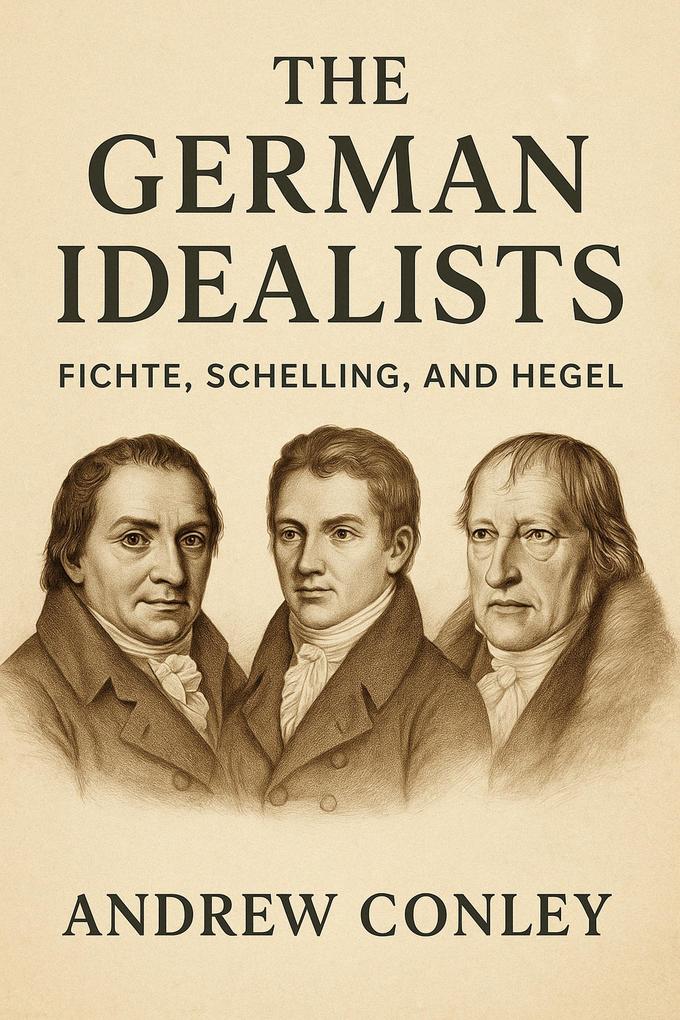
Sofort lieferbar (Download)
The German Idealists: Fichte, Schelling, and Hegel by Andrew Conley offers a comprehensive exploration of the central figures of German Idealism, providing a deep analysis of the philosophical contributions of Johann Gottlieb Fichte, Friedrich Wilhelm Joseph Schelling, and Georg Wilhelm Friedrich Hegel. In this work, Conley examines how these thinkers responded to the legacy of Immanuel Kant and shaped the trajectory of modern philosophy.
The book traces Fichte's development of the Ego as the fundamental principle of reality, Schelling's groundbreaking system that sought to integrate nature and mind through a dynamic Absolute, and Hegel's dialectical method, which revolutionized the way history, consciousness, and freedom were understood. By analyzing these philosophers in both their individual contexts and their relationships with one another, Conley demonstrates the evolution of German Idealism and its lasting impact on subsequent philosophical movements, including Marxism, existentialism, and phenomenology.
With an emphasis on the philosophical underpinnings of their work, the book also connects these idealist thinkers to the social, political, and historical realities of their time, showing how their ideas about freedom, state, and history intersect with their broader metaphysical systems. The German Idealists provides a detailed and accessible introduction to the depth and complexity of one of philosophy's most transformative periods, offering insight into how these thinkers shaped modern thought and continue to influence contemporary debates.
Produktdetails
Erscheinungsdatum
17. April 2025
Sprache
englisch
Dateigröße
0,30 MB
Autor/Autorin
Andrew Conley
Verlag/Hersteller
Kopierschutz
mit Adobe-DRM-Kopierschutz
Family Sharing
Ja
Produktart
EBOOK
Dateiformat
EPUB
ISBN
9798230472674
Entdecken Sie mehr
Bewertungen
0 Bewertungen
Es wurden noch keine Bewertungen abgegeben. Schreiben Sie die erste Bewertung zu "The German Idealists: Fichte, Schelling, and Hegel" und helfen Sie damit anderen bei der Kaufentscheidung.









